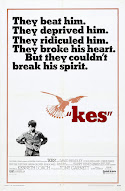John Cromby complains that left-wing political commentators treat psychiatric diagnoses as uncontroversial: "This has the effect of reifying psychiatric diagnoses – of making them appear more real, more concrete, more legitimate. It also works to undermine critiques: of diagnosis, and of psychiatry more generally."
"G.K. Chesterton once wrote that journalism was, 'saying "Lord Jones Dead" to people who never knew that Lord Jones was alive'." A hundred-and-some years later that sounds rather quaint. Today, it’s asking three different sources with a vested interest in the matter whether Lord Jones is in fact dead, and posting their contradictory answers in real-time as you receive them." Martin Robbins argues that Donald Trump - and Robert Peston - have broken the news, and that it's probably time to rethink your information diet.
Many of the oligarchs who supported Hitler ended up in concentration camps, reports Timothy W. Ryback.
David Trotter reviews the new British Film Institute book on Ken Loach's Kes (1969): "Kes marked a conscious departure from the 'go-in-and-grab-it' style of Up the Junction. The aim now was to observe, sympathetically, at a distance, but still with a view to avoiding as far as possible any suspicion of extensive rehearsal."
"In the popular imagination, Birmingham isn’t thought of as an artistic bohemia. The city’s historic stereotype, judging by the backdrop to the likes of Peaky Blinders or the risible Tolkien biopic from 2019, is summed up by no-nonsense men bashing iron in huge factories, often to a heavy metal soundtrack." But there's more to the city than that, says Jon Neale as he looks at the role of the Arts and Crafts movement in its history.

No comments:
Post a Comment